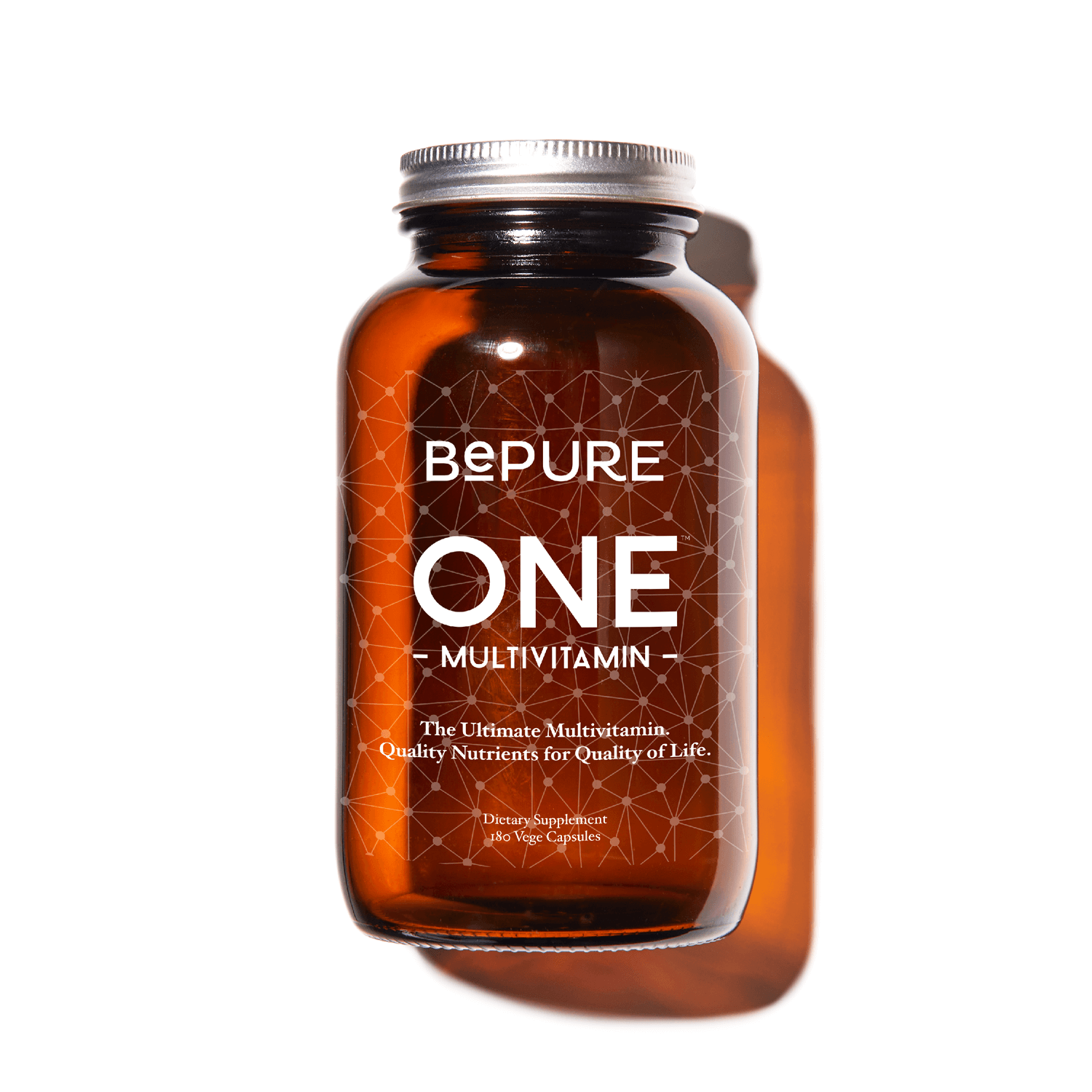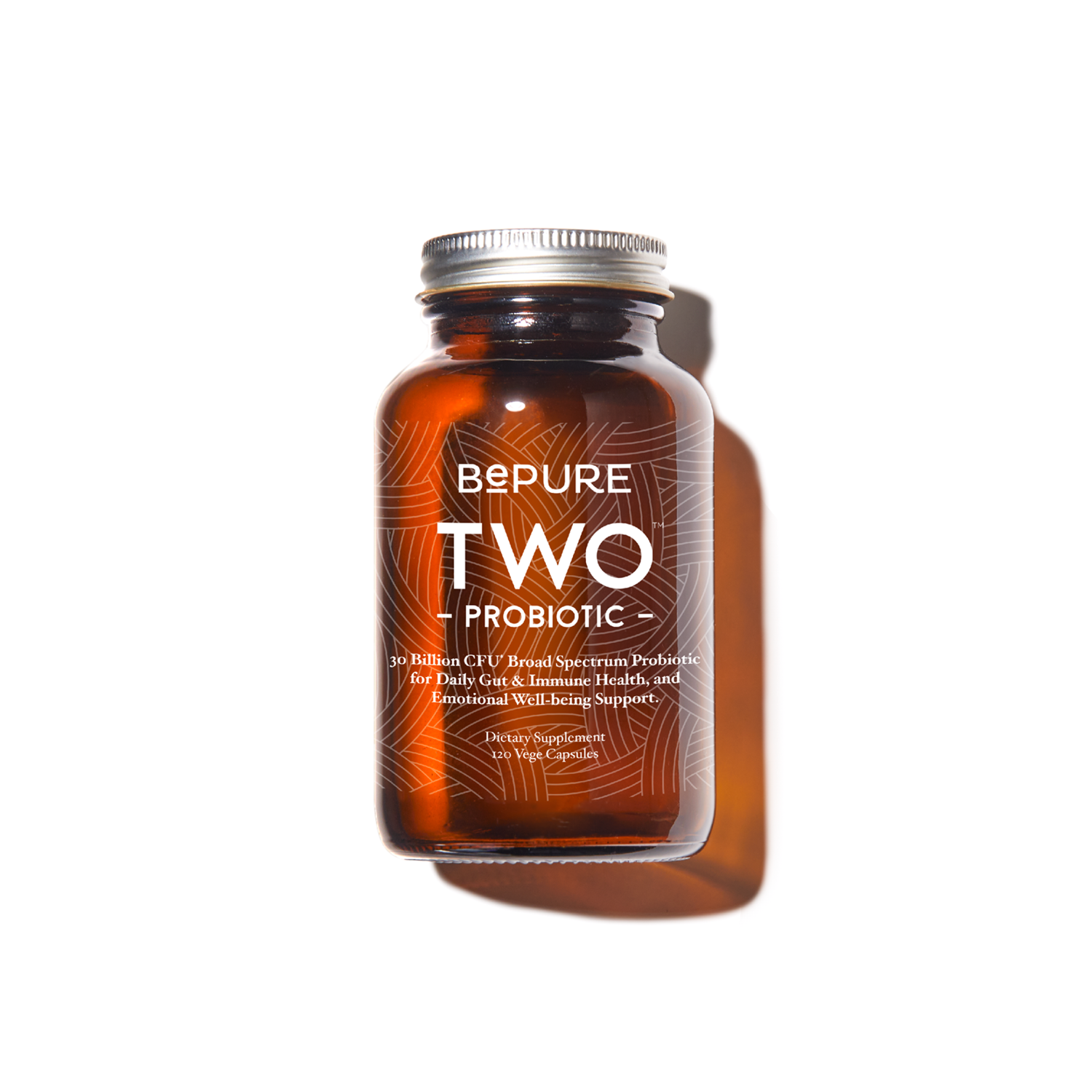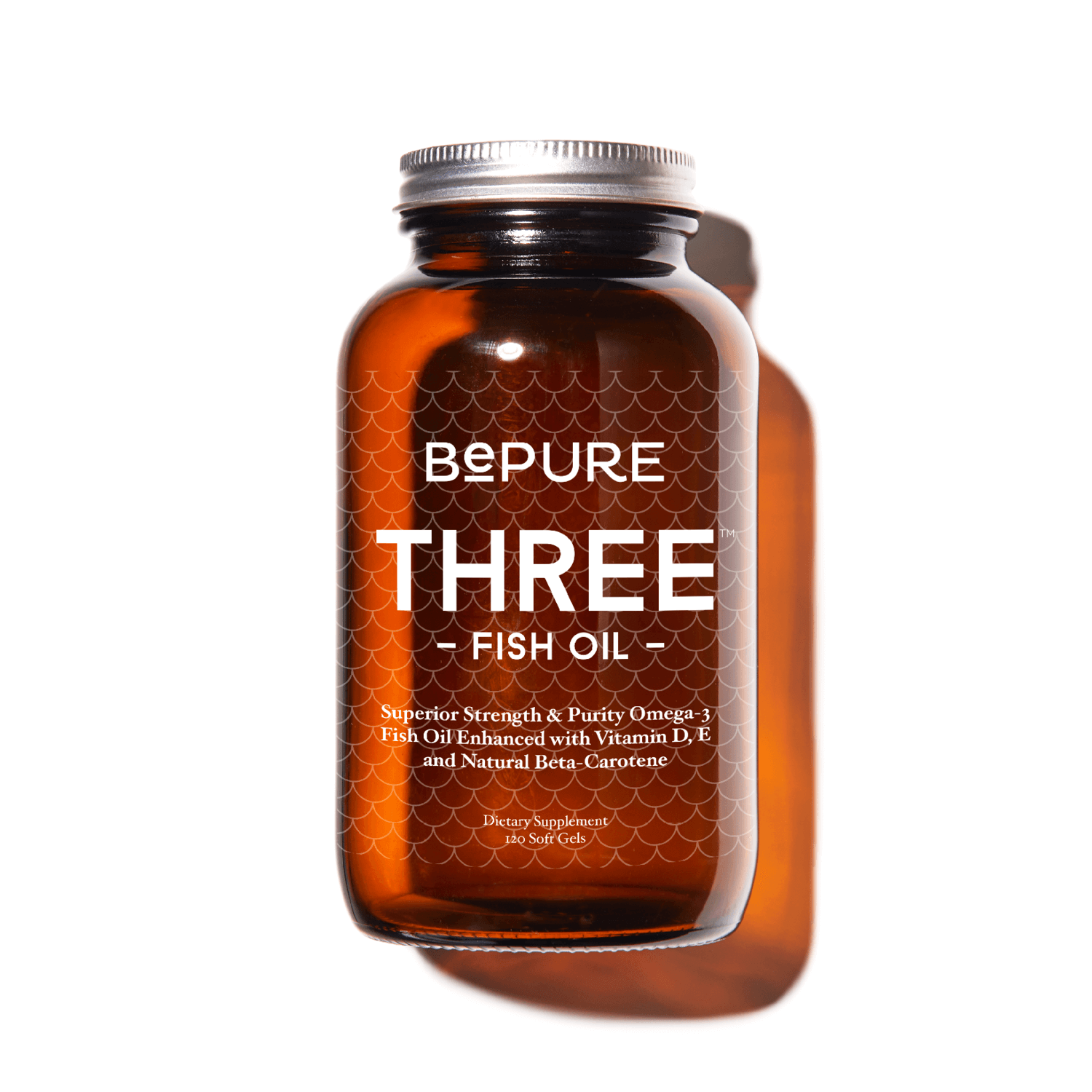Clean eating is a term that took over the wellness world a couple of years ago.
The term doesn't have a strict definition, and means something different to everyone. For some, it is positive and empowering, and for others, it has negative connotations, implying that the opposite of clean eating must therefore be 'dirty'.
This perspective supports the 'good and bad' foods, or 'healthy or naughty' dichotomy, which we don't think is super helpful when it comes to cultivating a wholesome and balanced approach to wellness and food.
Sure, some foods support health more than others, absolutely. We couldn't tell you that broccoli and Mars Bars have equal effects on our health. But it's more about what we do most of the time than what we do some of the time. We'll talk more about that later on.
The foundations of 'clean eating' are essentially, 'just eat real food', which is what the BePure philosophy boils down to. So that we're all on the same page, here's what we mean when we use those words:
The short answer is that for us, 'clean eating' simply refers to a diet made up of nutrient-dense, whole foods.
But that's just the tip of the iceberg—here's the long answer, starting at the beginning:
The BePure Philosophy
Our philosophy focuses on eating nutrient-dense whole foods that support your health while reducing inflammation and illness.
This means eating an abundance of fresh seasonal vegetables, fish, free-range eggs, nuts, seeds, organic grass-fed meat, soaked gluten-free wholegrains and legumes.
It's less about restriction and more about abundance.
The foods that don't fall into our definition of clean eating include gluten, refined grains, some kinds of dairy, refined sugars and highly processed vegetable oils.
We don't believe being dogmatic around this is productive, which is why we like to pair our clean eating approach with the '80/20 rule'. Flexibility is essential for a holistic sense of wellness.
We don't necessarily always avoid foods that contain sugar, alcohol or other less-than-ideal foods, but they are 20% of our of diet.
There's so much more to health than what you eat, and so health also looks like enjoying cake and wine with your friends at a birthday—just not eating cake as part of your baseline daily routine.
It’s not our intention to suck the joy out of living—although you will see that eating healthy food can be delicious and enjoyable—but to give you the greatest amount of energy, health, and vitality to let you live the life you want, and this is what eating well 80% of the time supports.
When beginning to include more nutrient-dense foods into your life, it can be helpful to think of the mantra: progress, not perfection.
Small changes consistently chosen are more beneficial and sustainable than attempting to overhaul your entire lifestyle in one go.
The Benefits of Eating Whole Foods
Managing Inflammation
Wholefoods support our body's capacity to manage and regulate inflammation.
Foods that are high in trans-fats, refined grains, sugar, preservatives and emulsifiers can lead to gut dysfunction, poor memory, foggy thinking, chronic aches pains and poor sleep.
You may well have experienced this for yourself—feeling sleepy and lethargic after eating a pizza for lunch.
What even is inflammation?
Inflammation is the body's attempt to heal itself after an injury; defend itself against foreign invaders, such as viruses and bacteria; and repair damaged tissue.
This is a normal and healthy response, but when we experience chronically high levels of inflammation within our bodies make it difficult to feel happy, healthy, and energetic, and over time can lead to quite serious illness.
Stabilising Blood Sugars
Wholefoods support stable blood sugar levels.
Because wholefoods have a lower glycemic load—that is the rate at which your body uses the food for energy—you tend to feel more satiated for longer after eating. This can help with cravings and energy, as well as being necessary for managing metabolic conditions such as type 2 diabetes, weight management and changing body composition.
Our bodies are all unique, and we require different food combinations to feel our best. You can take the BePure Macronutrient Profile Questionnaire to find out which foods best support satiety and stable blood sugar levels.
Increase Nutrient Uptake
Wholefoods, when prepared properly, have a lower level of anti-nutrients, meaning your body is easily able to absorb, and use, the nutrients from your food.
Proteins found in certain foods can block the absorption of other nutrients when eaten. For instance, the proteins found in gluten-containing foods have been shown to prevent the uptake of iron, calcium zinc and magnesium when eaten alongside foods rich in these nutrients.
This means even if you eat a well constructed diet, or you take nutritional support your body may not be able to store or use these nutrients if you regularly consume gluten.
Inflammatory Foods
As mentioned above, eating a whole-foods-based diet is extremely beneficial to your health.
However, what we add in—vegetables, soaked whole grains, legumes, meat, eggs, fish, nuts and seeds—is only part of the puzzle. What we leave out is just as important for your health.
Here are three common foods we recommend moving away from as much as possible. Remember that every body is unique.
Some other foods, such as dairy and gluten free whole grains will depend entirely on your personal tolerance. It can be overwhelming trying to change everything all at once, so we suggest starting with the three outlined below:
1. Gluten
For many people, grains—especially gluten-containing grains—can contribute to problems affecting everything from digestion, mood, and skin disorders like rashes and eczema, to joint pain, weight gain, migraines, and thyroid disorders.
At first, it can be confusing when starting on a gluten-free diet. But once you get into the swing of things, you'll find there are still plenty of far more nutrient-dense, less inflammatory, and delicious alternatives.
Foods like starchy vegetables, legumes, fruit and soaked whole grains that do not contain gluten are great options for nourishing your body without the inflammatory properties of gluten.
2. Refined Grains
Refined grains such as pasta, flour, breakfast cereals, crackers, processed breads and biscuits spike your blood sugar levels, are highly processed and striped of their nutrients.
Perhaps surprisingly, cereals such as cornflakes and rice bubbles are higher on the glycemic index than straight table sugar!
Some amount of carbohydrate, dependant on your own unique genetics, is vital for energy production and brain function. However, you can get all the benefits of complex carbohydrates from whole ood sources such as root vegetables, fruit, legumes and soaked gluten free grains.
Concentrated doses of refined grains can lead to poor digestion, metabolic dysregulation, insulin resistance, type 2 diabetes and weight gain.
3. Refined sugar
The World Health Organisation (WHO) findings have confirmed what we all knew—we're eating far too much sugar.
New Zealanders are consuming, on average, 37 teaspoons of sugar daily!
That's 31 teaspoons over the amount recommended by the WHO, and about 34 teaspoons over the amount BePure recommends.
Eating sugar triggers the release of opioids in the brain, which makes you feel good and want more and more sugar. This is a problem because our bodies are only designed to process a small amount of fructose (a sugar molecule) in our livers.
Biologically, we haven’t evolved from traditional times when the only sugar we were exposed to was fruit found in nature, which was highly beneficial for energy and nutrients.
Now, we are bombarded with sugar everywhere, from pasta sauce to bread, cereals, tinned vegetables, and even salt and vinegar chips (to balance out the vinegar!).
Our exposure to processed foods means our bodies cannot keep up, and so we store this excess sugar as fat. Too much sugar can affect your mood, your blood sugar control, your hormonal health, fertility, body composition, and so much more.
We always like to say that it can take time and experimentation to find the right way of eating that is nourishing and enjoyable to you. Ultimately, the right diet for you is one based around whole foods that keeps you the fullest for the longest.
What to eat? Some basic guidelines:
As a starting point for harnessing the power of food to boost being and feeling well, here's what we recommend to begin with (as we're all different, you'll need to tweak as you learn about your own personal needs and responses):
Include in your '80%':
- Leafy greens
- Vegetables
- Preferably home-grown, spray-free or organic
- Free-range, grass fed meat
- Choose meat that has limited processing, additives and preservatives. Don’t trim off the fat.
- Free-range, organic eggs
- Fresh herbs
- Raw nuts and seeds
- Herbs and spices
- Organic spray-free fruits
- Cold-pressed extra virgin coconut oil
- Use for high heat cooking
- Organic butter
- Use for medium heat cooking
- Extra virgin olive oil
- Use for low heat cooking, and drizzling on salads
- Purified water
- Herbal teas
- Water with lemon juice
- Unsweetened cranberry juice
- Sparkling water
- Add mint and cucumber if you're after something a little more exciting
- Raw honey
- Apple cider vinegar
Limit to 20%:
- Gluten, wheat and refined grains
- Refined sugar
- Only use natural sweeteners in small amounts, such as raw honey, real maple syrup, stevia and dates
- Bread, crackers, pastry and wraps
- Potato chips
- Raw or processed soy (except tamari)
- Soft drinks
- All fizzy drinks except sparkling water
- Low-fat processed foods
- Coffee
- Black tea
- Alcohol
- Vegetable oils, e.g., corn, soy, canola and sunflower
- Packaged food
- Anything with added flavours, artificial sweeteners and preservatives
- When using dairy, use whole dairy
- Avoid low-fat or reduced-fat, and choose raw milk if possible
Nourish your body
If you’re ready to start making some changes to your nutrition, you might like to begin by challenging yourself to take a 7-day break from gluten and just see how you feel.
I’ve never met a person with an autoimmune condition, poor energy, or health concern who didn’t benefit from going gluten-free.
It can seem daunting initially, but we have lots of great recipes and resources to help make it easier for you to give up the g.
We’d also love to see all the delicious gluten-free creations you make. Share your pics with us on instagram and tag @bepurewellness



